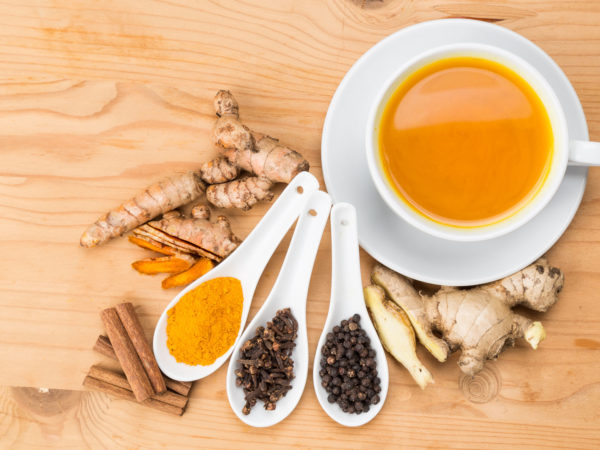Curcumin For Alzheimer's?
Can you bring me up to date on research into the use of curcumin for Alzheimer’s disease? Is it still considered a possible treatment? Do you still recommend including it in our diets as a preventive?
Andrew Weil, M.D. | October 1, 2013

Curcumin is a compound found in the spice turmeric. The yellow color of Indian curry and American mustard are due to the curcumin in the turmeric that is added to these foods.
The possibility that curcumin could prevent – or treat – Alzheimer’s stems in part from population studies showing that elderly villagers in India have the lowest rate of Alzheimer’s disease (AD) in the world, perhaps because their traditional diet gives them plenty of turmeric with almost every meal. Curcumin is a powerful antioxidant and also has anti-inflammatory properties that might play a role in the prevention of Alzheimer’s. (AD begins as an inflammatory process in the brain.) While research continues, so far I’ve seen no evidence of benefit from curcumin supplementation in Alzheimer’s patients. However, researchers from UCLA, the University of California, Riverside and the Human BioMolecular Research Institute have found that vitamin D3 plus curcumin may help stimulate the immune system to clear the brain of amyloid beta, which forms the plaques considered the hallmark of AD. That study was published in the July 2009 issue of the Journal of Alzheimer’s Disease.
Another study published in 2009 in the Journal of Neuroscience looked at two dietary supplements: fish oil rich in the omega?3 fatty acid DHA (docosahexaenoic acid) and curcumin. Researchers fed mice bred to be susceptible to AD a regular or fatty diet; some of the mice were also given fish oil and curcumin alone or in combination. They found that the high-fat diet increased Alzheimer’s disease–related chemical processes in the brain, and that fish oil and curcumin counteracted this effect. Dietary DHA and curcumin also appeared to help the mice remember their way through a maze.
However, development of curcumin as an Alzheimer’s drug has been hindered by the fact that it isn’t as bioavailable in the body as we need it to be if it is to become a worthwhile treatment or preventive. When ingested, not much curcumin actually reaches the bloodstream and even less gets past the blood-brain barrier. Although researchers have established that taking curcumin is safe, even at high doses, because of the bioavailability problem, no study has yet shown its effectiveness in treating Alzheimer’s patients. Ongoing investigations are focused on finding a way to modify or reformulate curcumin to overcome the bioavailability issue. Once that is solved, we may be able to see if curcumin fulfills its promise to prevent and treat Alzheimer’s. For now, we do know that one way to make curcumin more bioavailable is to combine it with piperine, a compound found in black pepper.
In addition to curcumin research on Alzheimer’s, the National Center for Complementary and Alternative medicine (NCCAM) reports that turmeric is being investigated for prevention of acute respiratory distress syndrome, liver cancer, and post-menopausal osteoporosis. Bear in mind that turmeric contains many other compounds besides curcumin. People in India consume the whole spice, not an isolated element, usually in dishes that also contain black pepper. Turmeric appears to have significant anti-inflammatory and cancer-protective effects as well, so I think it is good to find ways to include it in our diets. One easy way is to drink turmeric tea, a traditional beverage among long-lived Okinawans.
Andrew Weil, M.D.









